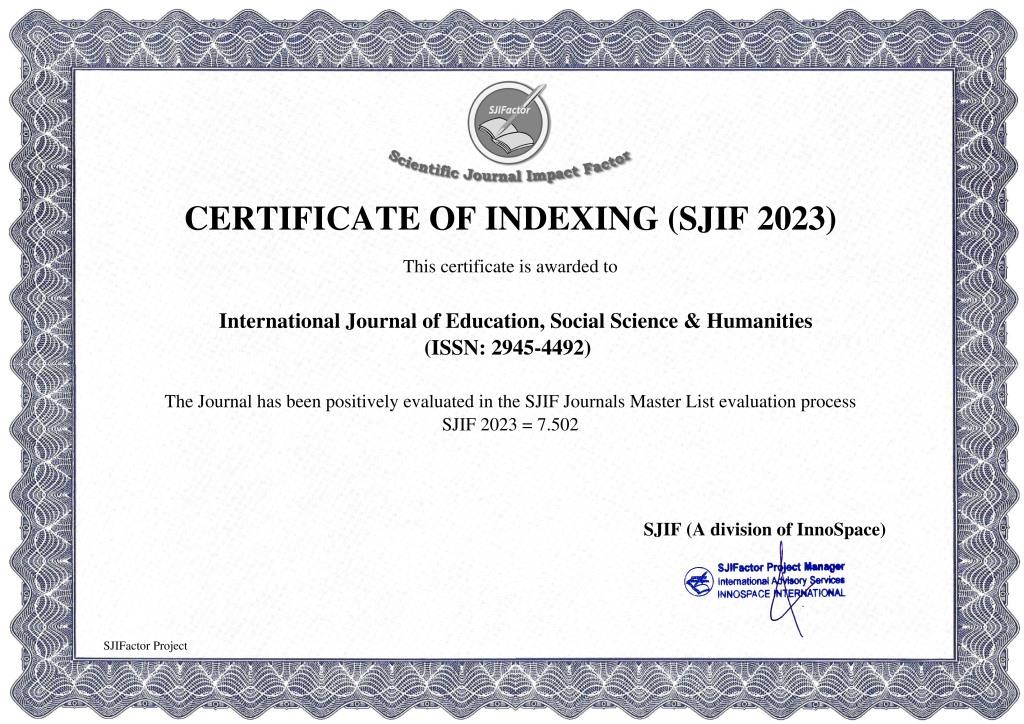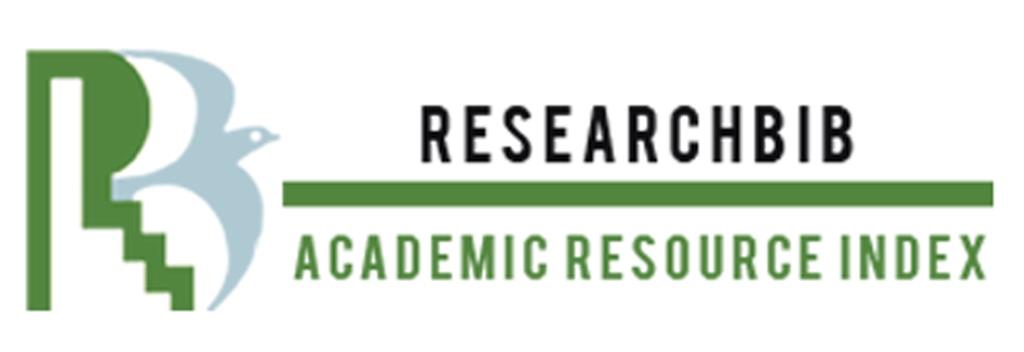OGUZ DIALECTS RESOURCES FOR ENRICHING THE UZBEK LANGUAGE LEXICON
Abstract
This article is devoted to filling the lexical gaps in the Uzbek language with of Oguz dialects. The proverb shows the norms and criteria for enriching lexical gap in modern Uzbek with dialektal word. The mechanisms of application of these criteria are explained by examples. These principles are specific to most languages and are formed in a particular language on the basis of the literary norms of that language. In the course of the research, the gaps identified in the process of comparing the lexicon of the Uzbek literary language and folk dialects were analyzed. That is, the lexical lacuna b in literary language represents dead concepts the popularity of dialectics. Dialektal word in Oguz dialects have been studied to delineate and define the object of study. Becoming a literary unit deemed appropriate for the interpretation of the meaning of the dialectism lenses and related sentences. It is based on the need to introduce into the lexicon of literary language of dialektal word that are actively used in folk dialects. Recommendations were made to continue working in this direction. In summary, the purity of the language blower to ensure the development of the city and its lexical gaps start to fill the need for serious attention.
References
Majidovich, H. A. Filling lexikal gaps with collovical words. Integration Educational. 2022.
Jamolkhonov H. Modern Uzbek literary language. - Tashkent, 2004. p.37.
Majidovich, K. A. Use of metaphorical word formation in filling lexical gaps in the language. European Journal of Humanities and Educational Advancements, 9(3), 2022. 32-37.
Hasanov A.M. On the difference between literary language and dialect lexicon. // Foreign languages in Uzbekistan. 2020. № 6 (35). pp. 41–51. Source: https://doi.org/ 10.36078/1613982881, https://journal.fledu.uz/en/on-the-differences-between-literary-and-dialectal-vocabulary/
Karimov S. The norm in language teaching. Study guide. - Tashkent: Abdulla Qodiri National Heritage Publishing House, 2002. 67 pages.
Togayev T.M. Navoi’s poetry and national folklore International Scientific Journal Theoretical & Applied Science p-ISSN: 2308-4944 (print) e-ISSN: 2409-0085 (online) Year: 2020 Issue: 06 Volume: 86 r. 517-520. Source:https://www.researchgate.net/profile/Tulqin-Togayev-2/publication/343031566_NAVOI%27S_POETRY_AND_NATIONAL_FOLKLORE/links/5fc8e111299bf188d4edb9f4/NAVOIS-POET
Khasanov, A. M. Filling Lexical Gaps in the Uzbek Language w ith Dialektal word (based on The Turkic-Kaltatoy Dialect). International Journals of Sciences and High Technologies, 25(2), 2021. P. 01-07.
Askarova, J., & Ahmedova, A. (2021). Publication directions of uzbek folk tales. ACADEMICIA: An International Multidisciplinary Research Journal, 11(5), 1062-1068.
Mahmudov N. Linguistic research. Tashkent, “Classic word”, 2017. p.105.
Khasanov, A. M. LEXICAL GAPS IN THE LANGUAGE AND THEIR LINGUISTIC FEATURES. 2023.
Majidovich, K. A. GAPS IN THE LANGUAGE LEXICON: IDENTIFICATION AND FILLING. Academia Repository, 5(1), 2024. P. 1-12.
Khasanov, A. M. LEXICAL GAPS IN THE LANGUAGE AND THEIR LINGUISTIC. ББК Зауралье Ш+ 81, 2 Т 30, 2023. P.369.
Khasanov A.M Filling Lexical Gaps in the Uzbek Language w ith Dialektal word (based on The Turkic-Kaltatoy Dialect) // International Journals of Sciences and High Technologies Vol. 25 №2 March 2021, pp. 01–07. Source: http://www.ijpsat.es/index.php/ijpsat/article/view/2870/1711
Tog'ayev T.M. Names of dishes in the language of Alisher Navoi's works // Scientific-methodical electronic magazine "Foreign languages in Uzbekistan" No 5/2019 pages 23-36. Source: https://journal.fledu.uz/uz/alisher-navoij-asarlari-tilidagi-taom-nomlari/
Reshetov V., Shoabdurahmonov Sh., Uzbek dialectology. - Tashkent: Teacher, 1978. 167 pages.
Development of the Uzbek literary language in the Soviet period III. –Tashkent, 1991. p.68.
Ismatullayeva N.R. Lacunas in Chinese and Uzbek Languages and Methods of their Detection. // International Journal of Innovative Technology and Exploring Engineering (IJITEE) ISSN: 2278-3075, Volume-8 Issue-12, October 2019. Source: https://www.ijitee.org/wp-content/uploads/papers/v8i12 /L32871081219.pdf
Majidovich, H. A. METHODS OF FILLING THE LEXICAL GAP USING WORD DERIVATION. Scienceweb academic papers collection. 2023.
Hasanov A. M. Filling lexical gaps in the Uzbek language with dialectal word (based on the Turkic-Kaltatay dialect) Novateur publications Journal NX-A Multidisciplinary Peer Reviewed Journal ISSN: 2581-4230 VOLUME 7, ISSUE 3, Mar. 2021. pp. 153–160. Source: https://repo.journalnx.com/index.php/nx/article/view/2745/2699














